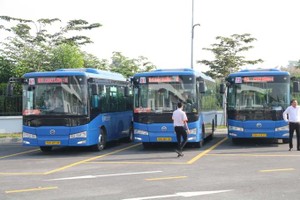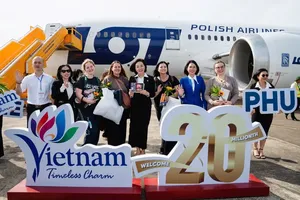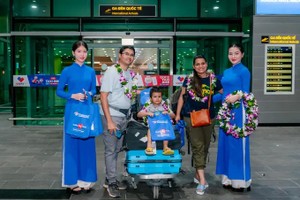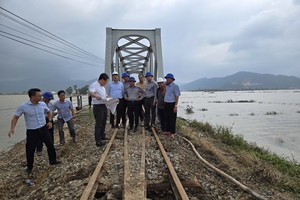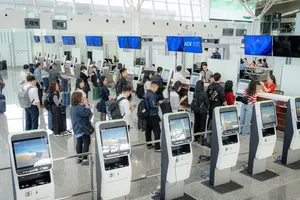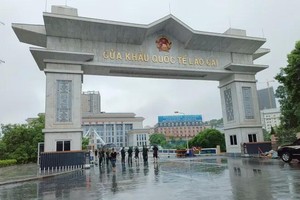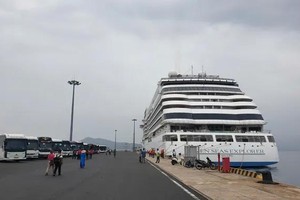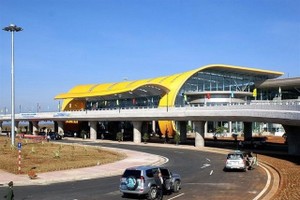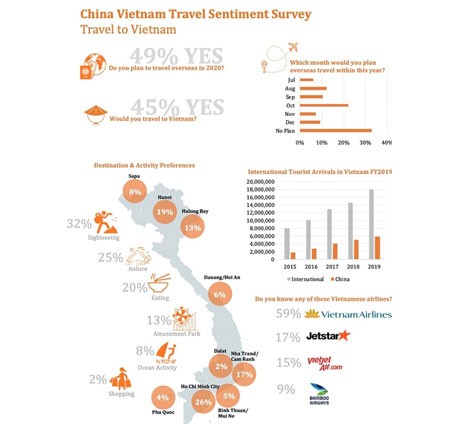
The country has effectively demonstrated a COVID-19 fighting model in Southeast Asia with a focus on the all-important driver of airlift demand.
The newly released survey of qualified travelers from first-tier cities in China by hospitality consulting group C9 Hotelworks and Delivering Asia Communications was created to understand relevant overseas travel sentiment for the remainder of 2020, and to analyse demand for Chinese inbound tourism to Vietnam .
Key points highlighted in the survey are that nearly half of the respondents want to travel abroad this year, with 45 per cent interested in travelling specifically to Vietnam .
Moreover, post COVID-19 Chinese travellers are looking at more mainstream, well-known destinations with top Vietnam picks being HCMC, Hanoi, Nha Trang/Cam Ranh Bay and Ha Long Bay.
Speaking about the reopening of Vietnamese tourism, C9 Hotelworks Managing Director Bill Barnett said: “A post-crisis short-term ‘fear factor’ is expected for extended air travel which will be manifested in a preference for short-haul, door-to-door flights, which is a key opportunity for China outbound tourism to Vietnam .”
“Of equal importance is to understand that, at the moment, and in the coming months, domestic travel and tourism will define the gradual recovery process. What is significant about the China Vietnam Survey is who the immediate post-crisis travelers are, and how hotels and tourism stakeholders can proactively meet their needs. We see a parallel trend in early travelers both domestically and from the China data, which pair up in a new tourism visitor profile,” said Barnett.
Putting the market insights to use is an important sentiment voiced by David Johnson, CEO of Delivering Asia Communications, who added that “a 360 degree view of the results from over 1,000 qualified respondents concludes that tourism for the remainder of the year will be heavily leveraged by younger travelers 20-29 years old who are increasingly placing an emphasis on booking hotels on digital platforms".
“Two other significant trends from our China research showed that aside from sightseeing and eating being key activities, nature moved up in preference, which could be a reaction to a post-crisis change in tourism values. Diving into accommodation preferences, the two ends of the price spectrum of budget/economy and five-star hotels drew the most positive responses from the Chinese surveyed,” he said.
One final takeaway from the survey is how younger travelers are reflected, with 81 per cent saying they would choose independent travel over group tours. This fact, coupled by younger Chinese booking travel digitally via WeChat and Fliggy, is a new twist in Vietnam’s marketing to China inbound tourists.
